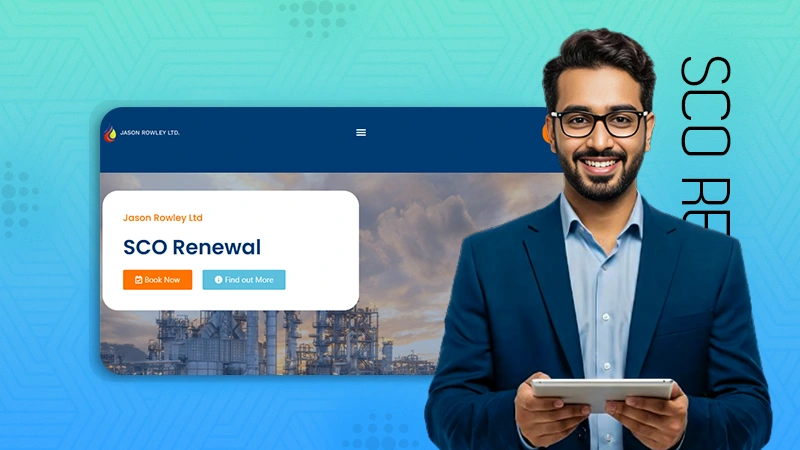10 Reasons Sustainability Matters for Your Business
Research shows that customers want to support businesses that focus on sustainability. When organizations build their sustainability story, they show they care about the future and not just profits. Business sustainability should focus on the environment, social issues, and economic governance (ESG).
ESG Factors
As businesses look into growing their ESG factors, they can turn to ESG software solutions to build and track data. Companies can collect information about sustainability practices and how they benefit their local communities. The software can help them organize data about economic governance to show stakeholders that the company does not have unsavory financial practices.
Using ESG software provides businesses with solutions for the call to transparency. Customers want to know how their favorite companies are making a difference globally. With ESG software, you have what you need at your fingertips. It is easy to share details on social media and press releases.
The software also provides data that lets companies learn how the changes are impacting their bottom line. Businesses can also see what isn’t working and where they can make additional changes to reduce their carbon footprint and help their local communities.
Build a Brand
When your brand is connected to sustainability and supporting social issues, customers see it. They tell their friends, then your brand benefits from the positive word-of-mouth marketing. Younger generations care about the planet’s future, and they want to support brands that have the same concerns.
Companies that share their ESG strategies and show how they achieve them have a competitive advantage over businesses that neglect the environment and social issues. Consumers want to know that their money is making the world a better place. If they find companies use their profits to line the owners’ pockets, customers will go elsewhere.
Directly Impacting the Environment
Businesses that take steps to reduce their environmental impact, actually do help the environment. When they reduce their reliance on natural resources, businesses can save money and lower their carbon footprints.
With their ESG software, businesses can see how using sustainable materials in their manufacturing reduces energy and water use. Companies will notice their utility bills drop, and some government agencies offer incentives and subsidies to help businesses change to sustainable practices.
Finding the Best Talent
Employees want to work for companies that care about the environment, social issues, and responsible governance. They do not apply for jobs at companies with toxic reputations and wasteful manufacturing practices. If companies want the best people to work for them, they must embrace ESG practices and share their sustainability practices and successes.
When businesses build an environment that draws top talent, they must keep their ESG practice growing and evolving. Companies of all sizes can use their top talent to help grow those practices through their innovative and creative ideas.
Opening Markets
Businesses that focus on sustainability and social issues can increase their reach into limited markets. Some companies will only work with those with similar goals. If your business is using old-fashioned practices that harm the environment, you won’t be able to work with innovative, eco-friendly businesses.
Around the world, governments have set sustainability regulations. Companies that do not meet those regulations won’t be able to do business in those countries. Introducing sustainable manufacturing can help businesses open doors into new markets that businesses without sustainability cannot enter.
Become Proactive Rather Than Reactive
Companies that are proactively focused on setting high standards for environmentalism, concern for social issues, and responsible governance are leading the way. The proactive companies show other companies how to do it, but all too often the reactive companies do not do enough to make a difference.
Unfortunately, many companies respond only to a crisis rather than taking steps to do good on their own. But, doing something is better than nothing. So, if your company responds reactively, you can take proactive steps after recovering from the crisis. Customers prefer to see companies that take steps because they want to, not because they have to.
Reducing Costly Transportation Expenses
Many companies are turning to local suppliers for their sustainable materials. By relying on local companies, businesses reduce their reliance on interstate and global transportation. Interstate and global transportation expenses reduce the bottom line and put a heavy burden on fossil fuels.
Part of the ESG promise is to have a positive impact on communities and social issues. Supporting local businesses by choosing them as suppliers show customers you care about local workers. The effect moves through other local companies, as the local employees spend their paychecks around the community.
Reducing Replacement Expenses
Businesses that practice sustainability spends less on replacing technology, furniture, and other expenses. Sustainability includes reducing trash by using items until they no longer work, then repairing them rather than throwing them away. Repairing items often cost less than replacing them, and taking steps to recycle, reuse, and repurpose helps businesses save money.
When companies become environmentally and financially responsible, they can pass those savings to their customers. They can also pay their employees more, as they have more cash on hand.
Benefits for Employees
Companies can help the environment by allowing employees to work from home. When employees work from home and do not drive to work daily, they buy less gas. They also reduce their carbon footprint. If businesses shut their offices for one day each week, they reduce their heating and cooling needs, reducing their impact on the electric grid.
When enough businesses reduce their utility needs and give more employees the option of remote work, communities could see recognizable changes in their air quality.
Employee Loyalty Improves
Not only will employers attract top talent, but they will also be able to keep their talent. When companies show their commitment to ESG, employees want to be involved. They do not leave to look for greener pastures.
Wrap Up
By developing and dedicating your business to helping the environment and local issues, employees, customers, and other businesses benefit. Customers want to support companies with ethical financial and governance practices.












